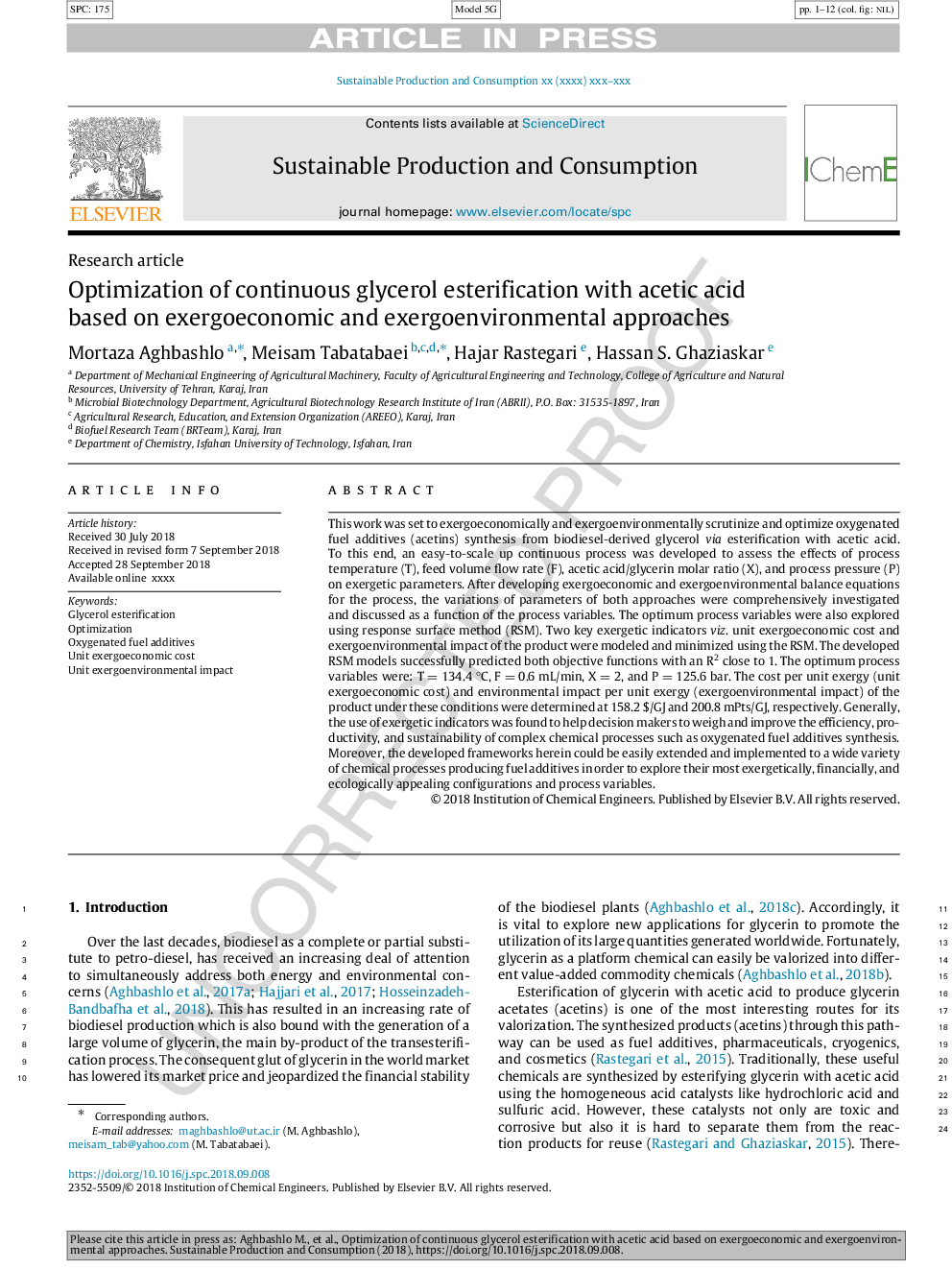| Article ID | Journal | Published Year | Pages | File Type |
|---|---|---|---|---|
| 11023635 | Sustainable Production and Consumption | 2019 | 12 Pages |
Abstract
This work was set to exergoeconomically and exergoenvironmentally scrutinize and optimize oxygenated fuel additives (acetins) synthesis from biodiesel-derived glycerol via esterification with acetic acid. To this end, an easy-to-scale up continuous process was developed to assess the effects of process temperature (T), feed volume flow rate (F), acetic acid/glycerin molar ratio (X), and process pressure (P) on exergetic parameters. After developing exergoeconomic and exergoenvironmental balance equations for the process, the variations of parameters of both approaches were comprehensively investigated and discussed as a function of the process variables. The optimum process variables were also explored using response surface method (RSM). Two key exergetic indicators viz. unit exergoeconomic cost and exergoenvironmental impact of the product were modeled and minimized using the RSM. The developed RSM models successfully predicted both objective functions with an R2 close to 1. The optimum process variables were: T = 134.4 °C, F = 0.6 mL/min, X = 2, and P = 125.6 bar. The cost per unit exergy (unit exergoeconomic cost) and environmental impact per unit exergy (exergoenvironmental impact) of the product under these conditions were determined at 158.2 $/GJ and 200.8 mPts/GJ, respectively. Generally, the use of exergetic indicators was found to help decision makers to weigh and improve the efficiency, productivity, and sustainability of complex chemical processes such as oxygenated fuel additives synthesis. Moreover, the developed frameworks herein could be easily extended and implemented to a wide variety of chemical processes producing fuel additives in order to explore their most exergetically, financially, and ecologically appealing configurations and process variables.
Keywords
Related Topics
Physical Sciences and Engineering
Chemical Engineering
Process Chemistry and Technology
Authors
Mortaza Aghbashlo, Meisam Tabatabaei, Hajar Rastegari, Hassan S. Ghaziaskar,
